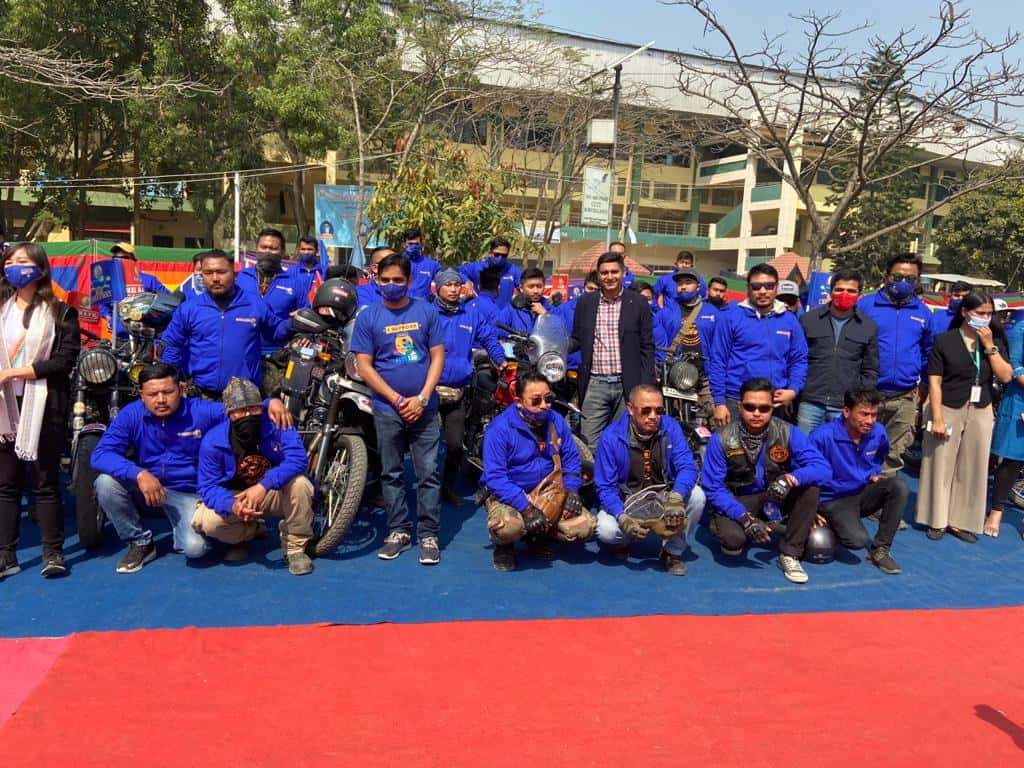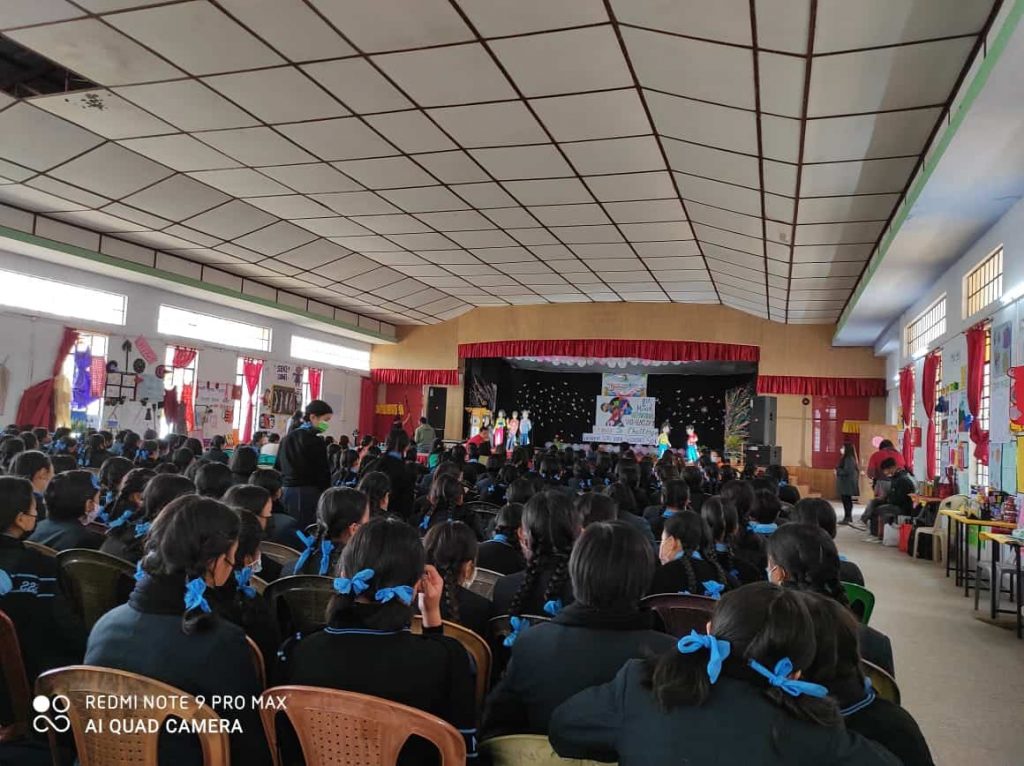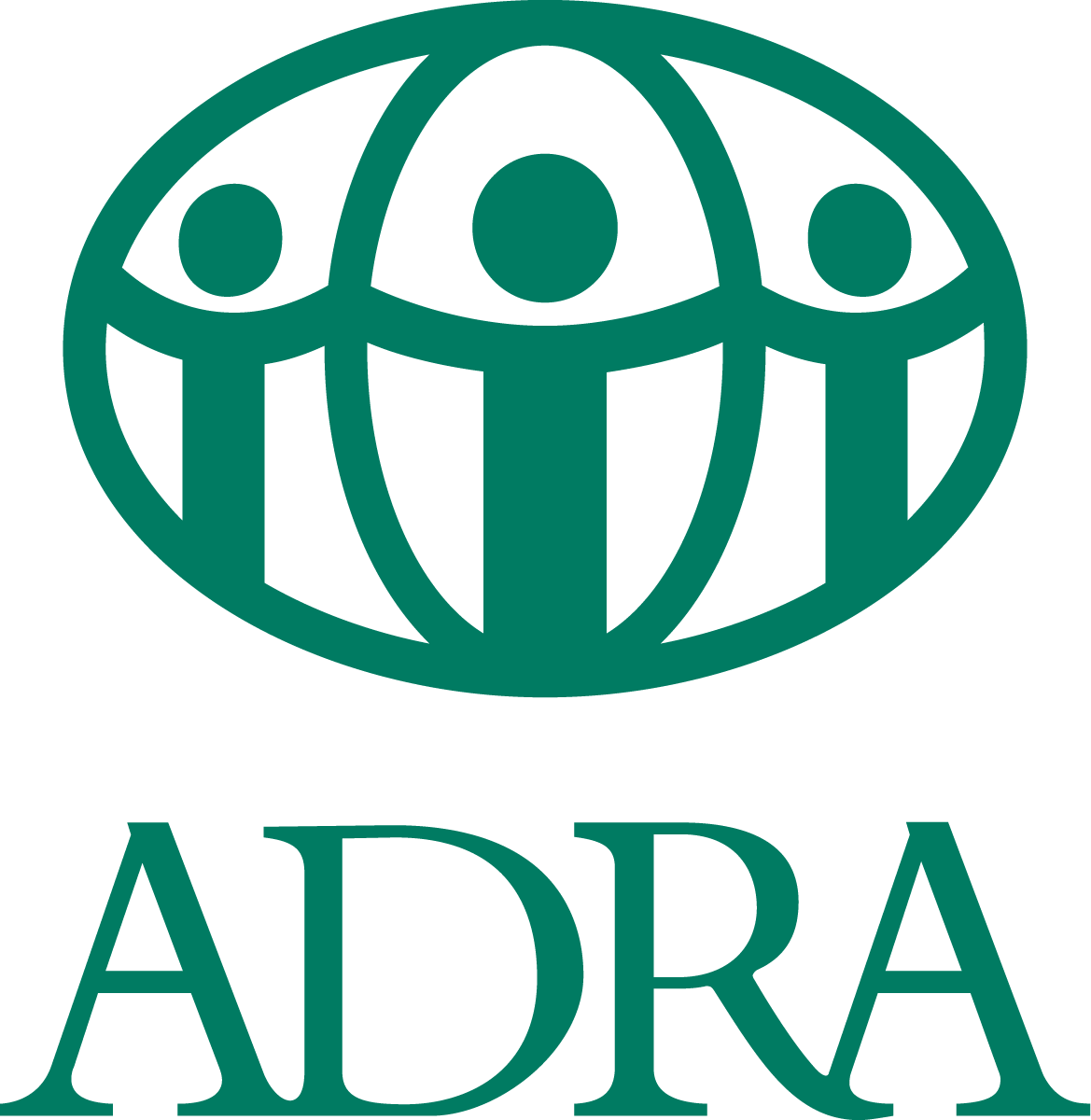Bike Rally coordinated to push awareness about youth educational program
ADRA India, with support from Reckitt Benckiser (RB), a consumer goods company and producer of health, hygiene and home products, launches a two-year program for 10- to 19-year-olds called “The Birds and Bees Talk.”

“The purpose of the program is to help young people make informed decisions about their health and life skills,” says Rajan Pydimalla, program director for ADRA in India. “ADRA helps people in need, especially those most vulnerable such as women, older adults, and minority communities—children are no exception. Having open conversations through The Birds and Bees Talk program allows young people to ask questions, understand what life outcomes will mean based on decisions they make, and take appropriate actions as they get older. ADRA is thankful for RB supporting a much-needed initiative and for advancing a cause that benefits generations to come.”
The program is comprised of 27 courses with an innovative and engaging curriculum designed to address the information gap around young people’s reproductive and sexual health and rights, and provide them with a comprehensive life skills module that addresses power, protection and pleasure.
By 2023, the program aims to reach two million children across government and private schools in six northeast states of India, namely Arunachal Pradesh, Manipur, Sikkim, Mizoram, Meghalaya and Nagaland.
To gain community support, ADRA and RB organized a bike rally, in collaboration with Royal Motors Group, in Imphal, Manipur with more than 50 bike riders who participated. Riders wore a royal blue T-shirt with “The Birds and Bees Talk” logo and rode nearly 110 km (68 miles) from Imphal East to Bishnapur to highlight the importance of decision-making, consent and life skills for adolescents.
Government officials, including the Minister of Water Resources, Youth Affairs and Sports, and the Deputy Secretary of Reverse and Disaster Management, were present to start the bike rally. Other dignitaries also attended the event and praised RB and ADRA for their concerted efforts to reach adolescents in the state.
“Adolescence is a crucial age to develop an understanding of one’s health and critical life skills,” says Ravi Bhatnagar, director of external affairs and partnerships for RB Health. “With The Birds and Bees Talk program, we have developed engaging ways to empower adolescents with essential critical thinking, decision-making, knowledge, attitude, and values. We aim to promote healthy behaviors so that the adolescents in the northeastern states grow into responsible, healthy adults.”
“This partnership is about educating adolescent youth about their bodies, about their health and wellbeing and taking on accountability for their lives. We are grateful to the teachers, the community leaders and the government leaders who have supported this program. We are especially grateful to RB, who has had such an integral part in making this event happen,” says Weston Davis, ADRA’s country director in India.

India has the largest adolescent population in the world, with 253 million adolescents (ages 10-19) living in India, according to UNICEF. This age group comprises of individuals in a transient phase of life requiring proper nutrition, education, sexual awareness, counseling and guidance to ensure their development into healthy adults.
Due to several socio-economic challenges, adolescents in India lack access to accurate and age-appropriate information on issues impacting their lives, according to a 2015 study. Adolescent girls, especially, are highly vulnerable due to the prevalent gender inequality resulting in early dropout from school, social stigma around the topics such as sex and menstruation, and early marriage and pregnancy.
Additionally, the northeast region reportedly has a high adult HIV prevalence in states of the northeast region like Mizoram (2.32%), Manipur (1.18%), Nagaland (1.45%), which are much higher than the average national prevalence (0.22%) in India. In Manipur, the most productive age group: 15-39 years, has the maximum deaths due to HIV. The regions’ population is also vulnerable in the context of HIV infection, particularly for drug users.
Original Article on ADRA International website: HERE
